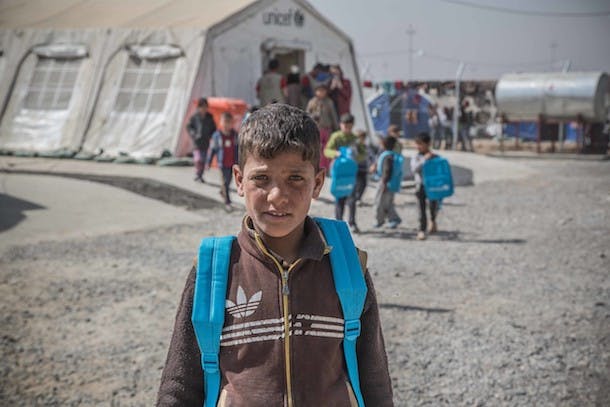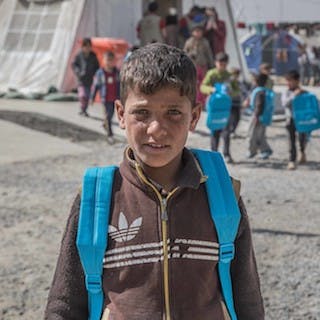
By Nicole Rubin, UN Foundation Summer 2017 Public Affairs Intern
As the fight to retake the city of Mosul from the grip of ISIL continues, civilians remain in need of urgent humanitarian aid. These are families who need shelter, children who have been cut off from school, and parents who are looking for ways to provide for their families. The United Nations also estimates that between 100,000-150,000 civilians are trapped inside the old city.
One of the primary concerns is for the protection of civilians in the ISIL controlled areas, with reports of civilians being used as human shields. UN Humanitarian Coordinator for Iraq Lise Grande said, “Fighting is very intense in the old city and civilians are at extreme, almost unimaginable risk.” The UN continues to call for the protection of civilians and adherence international law.
The Iraqi government’s Ministry of Migration and Displaced has reported that since the beginning of the western operation in Mosul in February 2017, over 600,000 people have fled western Mosul. A total of more than 854,000 people have been displaced from Mosul since the beginning of the operation in October 2016.
The need for humanitarian aid in the area remains urgent, as there are recurrent reports of food insecurity and shortages of both safe drinking water and medicines.
UN agencies have been preparing for, and responding to, the crisis for many months now, working to provide ready-to-eat rations, drinking water, sanitation facilities, and medical and protection services.
According to the UN Office for the Coordination of Humanitarian Affairs (OCHA):
- More than 1.7 million people have received emergency support, which includes food, water, and hygiene items;
- More than 14,000 injured individuals have been treated at trauma centers;
- Every day, humanitarian partners deliver 1.4 million liters of water to areas in west Mosul that are accessible, and 3.1 million liters to east Mosul; and
- Half of displaced families have found shelter in 19 priority camps and emergency sites, while others are staying in host communities.
While aid has reached millions, humanitarian needs are immense, and the situation is complex: Some areas, and the civilians within them, remain inaccessible to humanitarian partners. Additionally, more resources are needed since the Humanitarian Response Plan is only 42.1% funded.
Priorities of the UN in its humanitarian response plans include:
- Reaching as many people with assistance as is possible;
- Facilitating and advocating for voluntary, safe, and dignified returns;
- Helping families live in dignity; and
- Supporting people brutalized by violence.
Additional resources will help families in their greatest time of need. Your support can make a difference. To support the humanitarian response in Iraq, donate here.
[Photo: OCHA/Ivan Abdulla]

